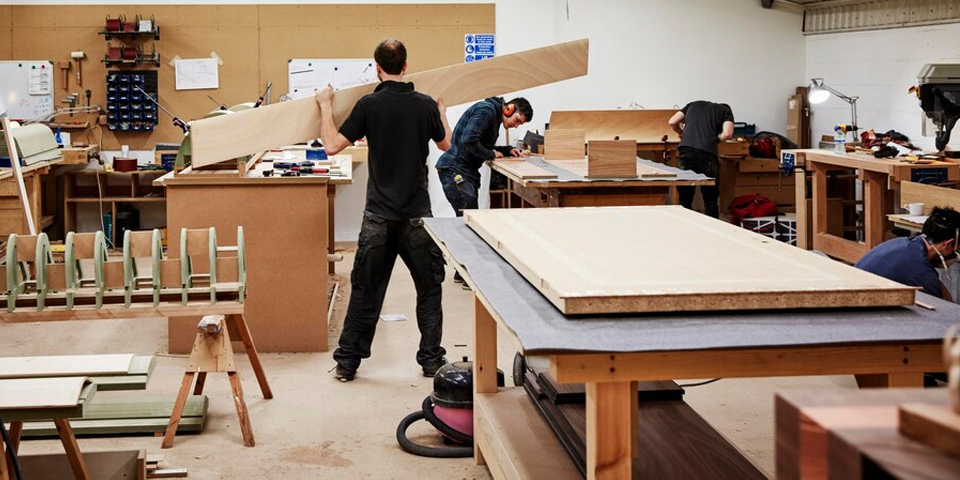
Commercial plywood is made by gluing together multiple thin layers, or plies, of wood veneer, with each piece of ‘ply’ being oriented at a right angle to the one beneath it. This process of layering and cross-graining creates a strong and durable material that would be resistant to warping, cracking, and splitting.
Commercial plywood is often made from hardwood or softwood species, such as birch, poplar, or pine. The type of wood used for the core, face, and back veneers can vary depending on the plywood’s intended use and desired properties. For example, some types of commercial plywood may be designed to have enhanced strength, moisture resistance, or fire resistance. A plywood factory in Yamunanagar makes commercial plywood.
One of the main advantages of commercial plywood is its versatility. It can be used for various applications, including furniture, cabinetry, flooring, walls, ceilings, and structural components such as beams and columns. It is also relatively lightweight and easy to work with, making it a popular choice for DIY and professional construction projects.
In addition to its strength and versatility, commercial plywood is an affordable and sustainable building material. Because it is made from thin wood veneers, it uses less raw material than solid wood and can be manufactured more efficiently. Many commercial plywood products also use wood from sustainably managed forests, making them an eco-friendly choice for environmentally conscious consumers.
Overall, commercial plywood is a widely used and reliable building material that offers a range of benefits in strength, versatility, affordability, and sustainability.
Commercial plywood can also be treated with various chemicals to enhance its properties, such as fire or water resistance. For example, marine plywood is a commercial plywood specially treated to resist moisture and is commonly used in boat building and other outdoor applications.
When using commercial plywood, it is important to consider the intended use, the environmental conditions, and the required strength and durability. Proper installation and maintenance are also important to ensure that the plywood performs as expected and lasts for its intended lifespan.
Commercial plywood can be made from different species of wood, such as hardwoods or softwoods, depending on the intended use and the desired properties of the plywood. Hardwood plywood is typically used for high-end applications requiring smooth, attractive surfaces, such as cabinetry or furniture. Softwood plywood, on the other hand, is commonly used for construction applications such as sheathing, roofing, and flooring.
One of the advantages of commercial plywood is its strength and durability. Plywood is made by gluing together multiple layers of wood veneers, each positioned at a right angle to the previous layer. This cross-grain construction gives plywood strength and stability, making it resistant to warping and splitting. Plywood can also be made with different thicknesses and numbers of layers, allowing it to be customized for specific applications and load-bearing requirements.
Another advantage of commercial plywood is its versatility. Plywood can be used for various applications, from structural uses such as beams and posts to decorative uses such as paneling and veneering. It can also be cut and shaped easily, allowing for intricate designs and curved surfaces.
In addition, commercial plywood is widely available and relatively affordable compared to other building materials. This makes it a popular choice for many construction projects, especially those that require a balance of strength, durability, and affordability. Visit our website now.